Biking is not a crime: justice for Dijon Kizzee

On Saturday, August 5, protestors blocked all northbound lanes of the 110 Freeway in South Los Angeles to demand justice for Dijon Kizzee, an African-American man killed by two Los Angeles County Sheriff’s officers.
The protest began at the Los Angeles County Sheriff’s station on Imperial Highway, where Black Lives Matter organizers had called a demonstration in solidarity with the Kizzee family. The demonstration got underway with a ritual prayer honoring the lives of those lost to police violence.
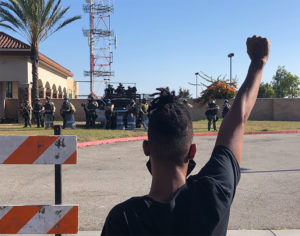
Photo by Héctor Rivera
Doctor Melina Abdullah spoke alongside clergy, community organizers and families seeking justice for their loved ones. Speakers from the Black and Brown Alliance for Justice denounced the use of force by officers and called on demonstrators to organize and kick-out Jackie Lacey from the office of the District Attorney in the upcoming election.
Family and friends of Dijon also spoke and remembered his lively presence at a barbecue the day before the shooting. Dijon’s younger cousin spoke about the family’s grief, how they’ve already lost several family members to COVID-19 and how their pain has been aggravated by this latest tragedy.
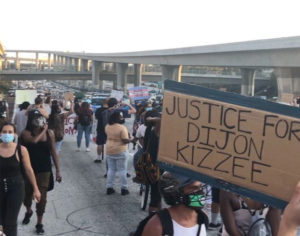
Photo by Héctor Rivera
Compared to the peaceful demonstration, the Sheriff’s officers looked menacing in full riot gear, mounted on trucks and with snipers on the roof. Despite the heat and the intimidation, hundreds of protesters showed up, many of them on bicycles, skateboards and roller skates to denounce the racial profiling of biking while Black that led to the fatal shooting.
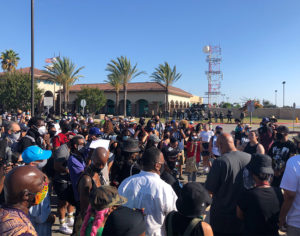
Photo by Héctor Rivera
The murder of Dijon Kizzee took place exactly one week after the police shooting of Jacob Blake police in Kenosha, Wisconsin. As with previous police murders, Dijon’s body was left on the hot pavement for hours until Black Lives Matter Los Angeles called for an emergency demonstration at the site of the shooting.
On Monday, August 31, two Sheriff’s officers had tried to stop Dijon for a “traffic vehicle violation” while he was riding his bicycle, yet he managed to escape. It’s still unclear how the chase escalated but grainy video shows two police officers confronting Dijon and then shooting him fifteen times. The pigs allege that he was carrying a gun, but this account is disputed by neighbors who say that he had a bundle of clothing in his hands.
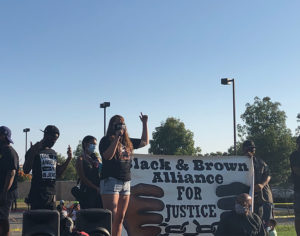
Photo by Héctor Rivera
The Sheriff’s office has yet to specify which vehicle codes Dijon had violated, but whatever the reason may be, this is another example of excessive police violence used against Black and Brown communities. The LA County Sheriff is already embroiled in controversy over the shooting of 18-year old security guard Andrés Guardado. In recent days, details have emerged that he was killed as part of an initiation into a white-supremacist gang called the Executioners, allegedly based in the Compton office of the County Sheriff.
This latest shooting clearly shows the need for a full investigation into the Sheriff’s Department and the prosecution of the officers in the department. For their part, demonstrators have called a protest in front of the Hall of (In)Justice on Wednesday to demand justice for Dijon, Andrés and other victims of police violence.
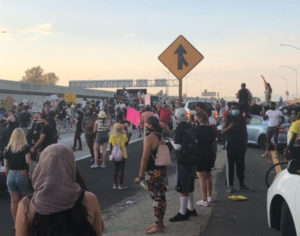
Photo by Héctor Rivera
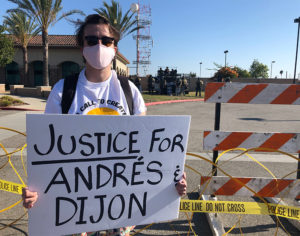
Photo by Héctor Rivera
Héctor A. Rivera is a queer, Mexican-American, socialist educator. He writes about geography, history and contemporary politics in Latin America. He lives in Los Ángeles, Califaztlán.

